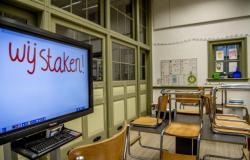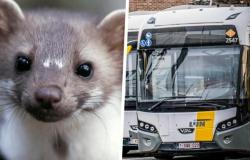The new CEO of Engie in Belgium, Vincent Verbeke, has revealed the priority list of Belgium’s largest energy company almost four months after taking office. The common thread, according to him, is that the plans are entirely dedicated to accelerating the “unstoppable energy transition”.
Engie will respond to this in Belgium by expanding its green energy capacity in the coming years from around 700 megawatts today to 2,000 to a maximum of 2,500 megawatts by 2030.
The plan includes a tripling of solar energy (from 100 to 300 megawatts) and a doubling of onshore wind energy (from 500 to 1,000 megawatts), but the biggest leap must happen at sea. Engie Belgium aims for a capacity of 1,000 megawatts at sea, CEO Verbeke announced. The counter currently stands at less than 100 megawatts.
This means that Engie aims to play a leading role in the development of the second Belgian wind energy zone in the North Sea (the Princess Elisabeth zone), which should provide an additional wind energy capacity of between 3,150 and 3,500 megawatts for our country. The offshore wind expansion will be done through Ocean Winds, a partnership between Engie and Portuguese renewable energy company EDPR.
Large new gas power plant
In addition to increasing green energy production, Engie Belgium’s strategic plan contains a long list of concrete and less concrete investment projects that respond to the increasing need for alternatives for when the production of solar and wind energy is not sufficient to cover electricity consumption. The green light has already been given for the installation of a large battery park in Vilvoorde and a large gas-fired power plant in Flémalle, near Liège, and the slight increase in the capacity of the large energy storage in Coo. According to Verbeke, several other battery park projects are being studied.
At the same time, Engie hopes to be able to involve families more in the future to coordinate electricity supply and demand. This can be done, for example, by using the battery capacity of the increasing number of electric vehicles. According to Verbeke, this means that the rollout of the digital meter in Belgium must accelerate in the coming years. He does not hide the fact that Brussels and Wallonia must work more on the installation of the digital meter.
Engie further assumes that the energy transition can only succeed if efforts are also made to expand the supply of green and low-carbon gases. Verbeke states that Engie is pioneering in Belgium in the port of Ghent, where it wants to build a large factory together with the Norwegian energy company Equinor to produce so-called blue hydrogen. This involves hydrogen production based on natural gas, with CO₂ emissions being captured and stored in depleted gas fields at sea.
The CEO of Engie Belgium assumes that more and more low-carbon gases will be imported as an alternative to fossil natural gas in the coming years, including from France.
Nuclear power plants
Verbeke was brief about the role of Belgian nuclear power plants in Engie Belgium’s energy transition plans. He pointed out that Engie is doing everything it can to prepare the two youngest nuclear power stations (Doel 4 and Tihange 3) to produce electricity for ten years longer. He added that Engie’s strategy to reduce CO₂ emissions to zero by 2045 focuses on expanding the production of green electricity and carbon-free or green gases. In addition, the focus is on activities that allow us to respond to the increasing need to coordinate electricity supply and demand. Nuclear energy has no role in this, he said.
Verbeke is not ultimately responsible for the operation of Belgian nuclear power stations in Belgium. At the beginning of this year, the French parent company appointed a CEO for the first time specifically for the Belgian nuclear branch.
Bio
Vincent Verbeke, CEO of Engie Belgium
47 years
Born in Charleroi
Civil engineering studies (UCL) and economics (KU Leuven)
From 2000 to 2005 project manager at Tractebel
Started working at Electrabel’s energy trading division in 2005
Member of the board of Engie’s energy trading department since 2020
CEO of Engie Belgium since January 2024
Calls himself a sports fanatic
Played semi-professional basketball for ten years
(pse)






